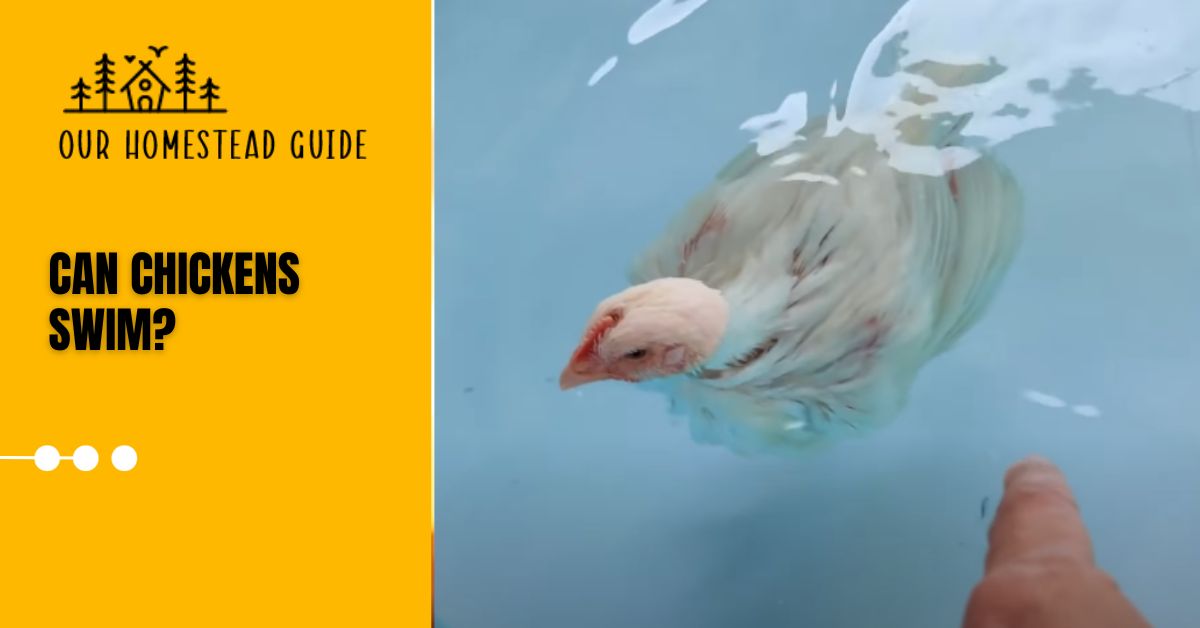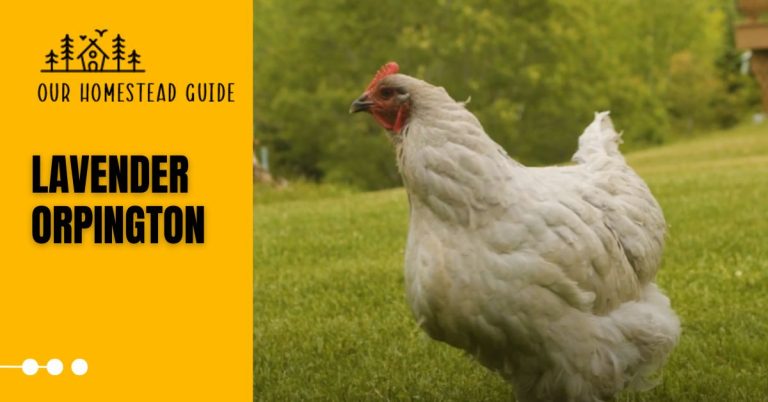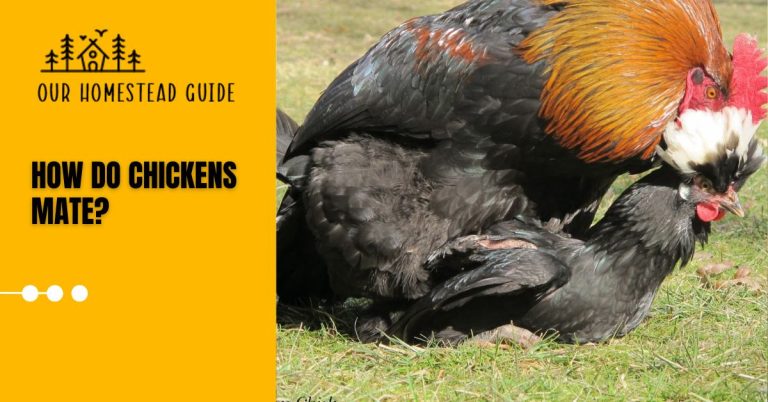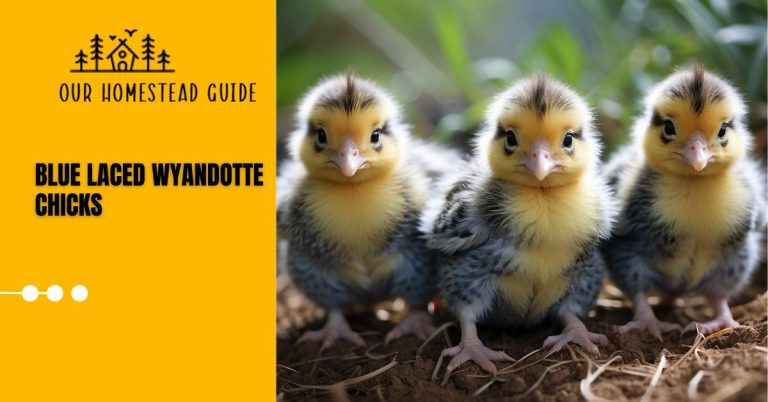Can Chickens Swim? Complete You Should Know
Can Chickens Swim? yes, but The poor chickens can’t stand the heat. Cold winters are not too bad. Their many feathers effectively maintain their warmth. Chickens lack impermeable feathers, therefore extended immersion puts them at risk even if they can swim briefly. Provide shallow water in a kiddie pool so they may stand and get out quickly to keep them cool throughout the heat.

I had hens as pets, but I never really thought about their swimming until lately. Even though they are birds of a similar ancestry to ducks, I have never seen chickens swimming naturally, and the last six months have confirmed what I assumed.
Can Chickens Swim?
Indeed, chickens are capable of swimming; but, if given the option, they will often choose not to.
They certainly don’t love swimming, and when they do, it’s generally in situations when it may mean the difference between life and death.
We’ll look at the fact that chickens can swim, but before you let them, please be aware of the consequences for their general health and even shorter lifespans.
Chickens + Water

The subject of whether or not flock owners and individuals believed hens could swim was posed in a recent survey. Remarkably, the findings demonstrated that millions of individuals hold the view that hens are incapable of swimming.
Although most people find this issue to be quite trivial, flock owners find that understanding the answer to this question is crucial since it may mean the difference between life and death for their hens.
Every day, we will discover a great deal about our flocks’ personalities, interactions, and skills via close observation. In essence, we shall discover what it means to be a chicken and follow its lead. It is unfortunate that not many flock keepers get the opportunity to watch one of their flock members swimming or interacting with water.
Swim Or No Swim
For the record, the simple answer to the question of whether chickens can swim is yes. As previously mentioned, it is not their top option when it comes to activities they enjoy.

Should you ever let your hens swim or even come into contact with big bodies of water? Does letting them swim put them at risk for any health problems? These and other pertinent queries will be looked at and addressed below.
What are the physiological signs that chickens aren’t meant to swim?
The following physiological indicators demonstrate why hens aren’t adapted to swim naturally:
- Lack of webbed feet: Chickens have three forward-facing toes and a little dewclaw, whereas ducks and geese have webbed feet that function as paddles. These are not designed to push them through water; rather, they are meant for perching and scraping.
- Non-waterproof feathers: Chickens’ feathers are not as waterproof as those of ducks, which have a thick coating of oil that acts as an insulator. Their feathers take in water fast, making them heavier and less buoyant.
- Hollow bones: Despite being lighter for flight, chickens with hollow bones float less well in water than those with solid bones, which increases the likelihood that they would sink.
- Lack of insulation: Wet feathers lose their ability to retain heat, which causes hens submerged in water to quickly become hypothermic. This is particularly dangerous in colder climates.
- Respiratory stress: High on their heads, chickens mostly breathe via their nostrils. They run the danger of breathing in water when immersed or struggling in the water, which might cause respiratory distress and drowning.
- Instinctive and behavioral reactions: Chickens steer clear of water out of pure fear. Their inability to swim and their tendency to panic in the water further impair their capacity to stay afloat.
What if a chicken falls into a pool by accident?
Ability to Swim:
Because their feathers are not designed for buoyancy, chickens are not naturally proficient swimmers. It might be able to do it on its own if the pool is shallow enough for the chicken to stand in and walk out of.
Quick Rescue:
It’s critical to save the chicken as soon as possible if it’s suffering in a deep pool. If they are unable to exit the water, chickens risk drowning due to fatigue.
Help the Chicken Out:
You can carefully remove the bird from the water if you were present when it happened. Take care not to injure or overstress the chicken. It’s important to move swiftly but collectedly.
Closing Down:
Because they do not dry out fast, hens may have issues with moist feathers. To keep the chicken from cooling after rescue, it’s beneficial to gently towel-dry it, especially in colder months.
Keeping an eye on health:
In the days that follow the occurrence, keep a watch out for any symptoms of discomfort, sickness, or respiratory problems in the chicken. See a veterinarian if you observe any strange behavior.
Avoidance:
Consider fencing off the area surrounding pools and other water features to keep hens from inadvertently falling in. Accident risk can be decreased by erecting barriers or making sure the hens have restricted access to potentially dangerous places.
Chickens vs Ducks
To fully comprehend the idea behind chickens and swimming, we must examine another bird of a comparable size that is largely recognized for its swimming prowess: the duck.

In short, much as breathing comes naturally to people, swimming is a skill that nature built into ducks. They have everything they need to be proficient swimmers, including:
- They can move through the water at a very quick speed thanks to the strength of their webbed feet.
- They remain buoyant and entirely waterproof because of the oil that their feathers secrete.
- They can quickly and easily “right” themselves if they are unintentionally flipped over while in the water.
With these three fundamental characteristics, ducks are among the world’s best swimmers and paddlers without a doubt. When they’re in their element—the water—they are elegant, but when they’re on land, well, not so much.
As previously discussed, ducks cover their feathers with an oil that is secreted spontaneously from unique glands. These identical feathers become “waterproof” and buoyant as a result of the oil, enabling them to float instead of sinking.
Why Chickens Aren’t Good Swimmers
Nevertheless, unlike their companion bird, the duck, chickens are not naturally built to be proficient swimmers.

- They have no webbing of any kind connecting their toes to their feet. Because they don’t have webbing, they must paddle hard to go forward.
- They lack a specific oil gland for lubricating their feathers, which would keep them waterproof. This indicates that they have very little capacity to stay afloat.
- When a chicken inadvertently topples over in the water while upside down, there’s a strong possibility it will quickly drown since it won’t be able to “right” itself because it won’t float again.
Having said all of that, there are still some hens out there that will give swimming a shot, even if they are not naturally inclined to do so.
The Action Of Swimming
But hens are still quite the tiny paddles, even without the webbed feet that ducks have. However, all that paddling isn’t particularly forceful, which causes the forward motion to move at a considerably slower pace.
Thus, while hens do have some natural swimming skill, it takes a lot of effort for them to swim well. Even if it’s not their favored activity, swimming may be more of a hard-wired survival instinct for them.
The Basic Equipment For Swimming
Chickens are unaware of the primary piece of “equipment” that ducks have, which allows them to be the best swimmers in the natural world. In contrast to ducks, chickens lack the necessary apparatus for having waterproof feathers. Ducks have an oil gland that coats their feathers to keep them waterproof, whereas chickens lack this gland.
Can Chickens Swim? A chicken will eventually sink like a stone after spending some time in the water and getting soggy, which will ultimately lead to their drowning death. Because of this, hens shouldn’t be left alone near any body of water deep enough to submerge them and maybe drown them.
You must act swiftly to dry them off if one of your flock members unintentionally falls into a body of water, such a swimming pool, and is fortunate enough to escape. This is especially true if the occurrence happens during the winter. Because of their extreme susceptibility to hypothermia, hens can die from it.
The Panic Factor
An important component that influences how well—or how poorly—a chicken will be able to swim is its level of terror. Although most chickens will stay quite quiet most of the time, some fowl can panic and can easily drown as a result.
Indeed, there are recorded instances where hens were discovered submerged in a pail of water. On the other hand, the accounts also failed to mention how the chicken ended up there in the first place. Whatever caused them to fall into the bucket of water, the outcome was always the same: the chicken was dead.
Basically, those breeds of chickens that exhibit a calmer disposition, by way of logic, are more likely to be better swimmers than those breeds that are prone to having a nature of being higher strung. It is important to remember that, much like us humans, each chicken’s personality is individual to them, and no two are alike.
While one chicken may take being in water in their stride, another chicken may prove to have a somewhat major meltdown.
Chickens And Swimming Pools
It’s likely that you’ve seen the numerous photos on Instagram and the films on YouTube of hens lazily floating in a backyard pool. They float around like pool floaties, and they look extremely happy.
It is evident that chickens possess the basic abilities required for swimming, indicating that they are neither inherently incapable of swimming or that they are the world’s worst swimmers. But due to certain physical limitations, they can only swim in certain more uncommon—and frequently life-saving—situations.
Apart from the concern that hens would sink in the pool if they get wet, another issue is that swimming exposes them to the chemicals in the water, especially chlorine.
We are all aware that a variety of chemicals, including as sanitizers, algaecides, clarifiers, oxidizers, and other enzymes, must be added to swimming pools in order to maintain them hygienic and safe for use.
We are aware that frogs who enter swimming pools will eventually perish, but we are yet unsure of the long-term effects of the chemicals on chickens.
Swimming & Chicken Health
As was already established, a chicken’s general health may be impacted by prolonged contact to pool water. Regarding swimming in different bodies of water and its potential effects on health, there isn’t a single, conclusive response that applies to everyone.
Additionally, hens are extremely prone to contracting a fatal cold. Therefore, they might acquire a chill if they are swimming in the water and the surrounding air is fairly chilly. If they continue, this could have fatal implications.
By our standards, the exterior doesn’t have to be cold. Members of your flock might still be at risk of hypothermia. This is a serious issue that should not be disregarded since if the feathers are left totally wet, hens may perish. You must dry off and put any members of your flock somewhere they will remain warm as soon as you discover they are completely drenched.
Keeping Chickens Cool
Remember that hens experience heatwaves much like people do, especially on hot days like those in the middle and end of summer. But the ways in which they may cool themselves are severely restricted.
In addition to fluttering their wings or holding them out from the sides of their bodies, chickens release heat from their bodies through their waddles, combs, and the bottoms of their feet.
In light of this, a lot of hens could find it enjoyable to be able to stroll through a puddle or similar area that has cool water, which would enable them to cool off on their own.
Chickens And Wading Pools
A kid’s wading pool is a preferable option if you want your hens to be able to choose to relax in the water. You can use chemical-free, natural water, but be careful to keep the water’s depth to a minimum.
This kind of pool will provide your hens the option to rapidly exit the water if necessary. Many people who own a flock of ducks and hens will provide the ducks access to a tiny kid-sized wading pool.
Pool Safety
Chickens can fall into the water and perhaps drown, so even if you decide to use a kiddie wading pool with reasonably shallow water, you still need to take care.
A common option is to line the bottom of the pool with bricks or other blocks. With the help of these bricks or blocks, your flock will be able to stay cool and easily exit the pool.
If you want to go in a different direction, you may construct a ramp that leads into and out of the swimming pool. Your flock members will have the assurance that, in an emergency, they can easily get out of the water and to safety by positioning the ramp around the pool’s sides and providing a way to enter and depart.
Be Alert
It should go without saying that you should never leave a hen unattended if you physically submerge a flock member in a pool, whether it be a wading pool or a swimming pool.
You should handle the chicken like you would a little human child, meaning that you must give it your whole attention while it is submerged.
Remove the chicken from the water right away if it ever seems to be panicked or to be in discomfort. As was previously said, you must make sure the chicken is totally dry since wet chickens are prone to chills and even death.
Baby Chicks = Bad Swimmers
As several flock keepers are aware, young chicks differ greatly from their adult counterparts. Their feathers are still growing and are not as tight and thick as those of adult hens, which is one of the main distinctions. A young chick cannot float, despite the fact that mature chickens can because to their thicker feathers.
Because they are coated in down instead of feathers, baby chicks have little to no natural insulation. Because of its inadequate insulation, the chick can quickly become wet, develop a fatal cold, and succumb to hypothermia.
Your small chick has to be dried off right away and put back in its brooder under a warm source of heat if it gets wet at all, for any cause.
It’s crucial to realize that a young chick lacks the power necessary to correct itself as well as an adult chicken might, so it’s better to keep them away from any sort of water and discourage them from trying to swim.
Baby Chicks And Waterers
Several chicks drown in their own waterers, ending their lives within weeks of hatching. It’s advised that the waterer you supply your chicks when they get home be shallow enough to prevent them from falling in and drowning or from strolling into it.
I make it a point to add some little stones to the waterer as well, just to better guard against any potential losses. The chicks will benefit greatly from the marbles, which will both provide their tiny beaks the capacity to drink and keep them from inadvertently falling in and drowning.
Unbeknownst to most people, chicks dying in their waterers happens frequently. Generally speaking, newborn chicks are weak at birth and still learning how to use their legs, maintain their equilibrium, and move about in general. Because of this, the chicks run the risk of potentially dying after falling into their waterers to get a drink.
Are Some Breeds Good Swimmers
As with everything else in this world, some people are more skilled than others in particular areas. Chickens are subject to the same regulations as well.
Certain varieties of hens have a reasonable level of swimming ability. Furthermore, there are certain breed members who are thought to be poor swimmers, and there are breed members of other breeds that excel in the water.
The Silkies are one breed that has a reputation for being terrible swimmers. They are one species that sinks like a stone because of its unusual trait of having fluffy feathers, which makes them prone to getting soaking wet in a short amount of time after being exposed to water.
If you have Silkies in your flock, you must remove them from the water as soon as possible—within a few seconds, else they will almost certainly drown.
The Basic Take-Aways
Can chickens swim? – The answer is yes, and while some do prefer to swim, it is not typically something that they do.
Do hens have a drowning risk? It turns out that chickens can drown, and they do it very frequently.
Can young birds swim? No, their feathers, which resemble down, absorb water rapidly, making them anxious.
Are hens fond of water? Sure, but only with the intention of drinking.
Is getting wet harmful for hens? Yes, it is not a good idea to let your hens get wet, as a general rule of thumb.
Can hens perish in a swimming pool? Yes, even though your hens might think of your pool as a water supply, they might easily die in it.
Do hens float? Yes, a chicken can float as long as they are not completely submerged in water and their feathers are still able to hold air inside of them.
Which breeds are more adept swimmers than others? Indeed, certain varieties of chickens swim far better than others.
Can Chickens Swim? Final Thoughts
As demonstrated, hens are physically capable of swimming. However, that doesn’t imply they should swim just because they can. They are extremely vulnerable to cold and are prone to drowning.
If you decide to let your chicken swim or float in the water, be sure to take the appropriate safety measures to monitor them.
Most Frequently Asked Questions!
Q: Can Chickens Swim?
Chickens can swim, yes. Even if they are not good swimmers, some people might like being in the water. Gradually expose them to shallow water while keeping an eye on them and offering encouragement. Individual responses do differ, so be sure to put safety first and pay attention to how comfortable they are.
Why aren’t chickens good swimmers?
There are several reasons for this:
Not webbed: Chickens do not have webbed feet for propulsion, in contrast to ducks.
Feathers that are wet: Their feathers take up water rapidly, becoming less insulating and gaining bulk.
Lack of waterproofing: Unlike waterfowl feathers, chicken feathers are not waterproof, which increases the danger of hypothermia.
Do chicks swim?
Not at all! Despite just being in shallow water, chicks can drown fast because they lack the muscle and buoyancy of adult chickens.
Can chickens enjoy swimming?
On hot days, some hens appear to be able to tolerate—or perhaps enjoy—paddling in shallow water. But it’s risky to force them or leave them alone near water sources.
Is it safe for chickens to swim?
Certain hens may tolerate brief dips in clear, shallow water as long as they are well supervised. But keep in mind that extended exposure might be hazardous and that this is not their normal behavior.
What are the risks of chickens swimming?
- Hypothermia: Rapid heat loss and hypothermia are caused by wet feathers losing their capacity to insulate.
- Drowning: Chickens have trouble staying afloat when their feathers get wet, especially in deeper water.
- Predators: Chickens are at risk from foxes and hawks, which are drawn to areas with water.
Extra advice
- In warmer weather, provide shallow wading pools, but make sure kids can get in and out with ease.
- Don’t make hens learn to swim.
- After any water exposure, especially in cold weather, make sure they are completely dry.
- Young chicks should not be near any bodies of water.
you may also like this article.






